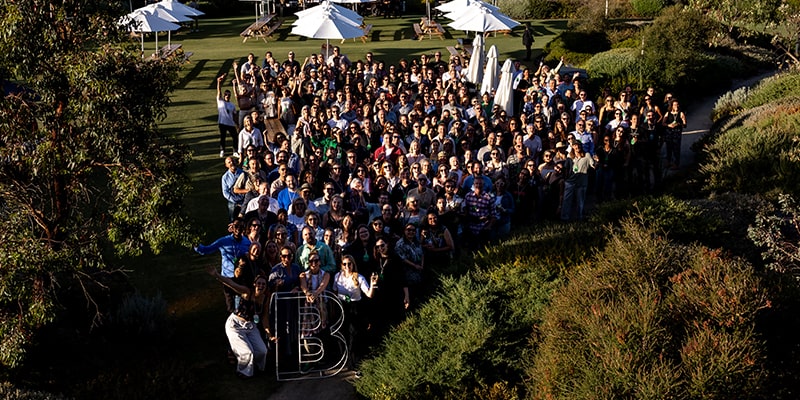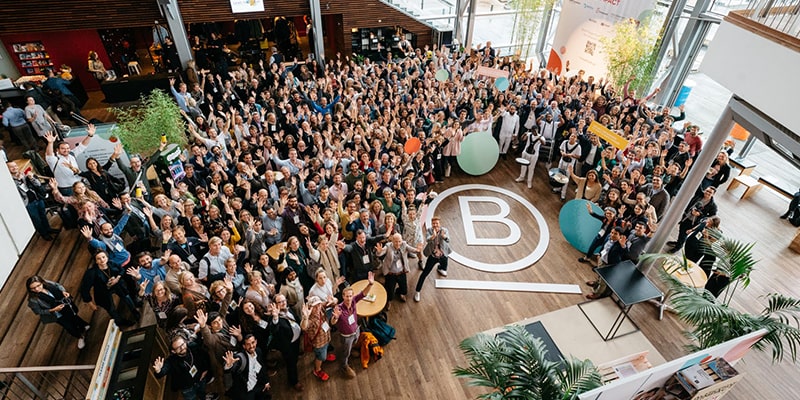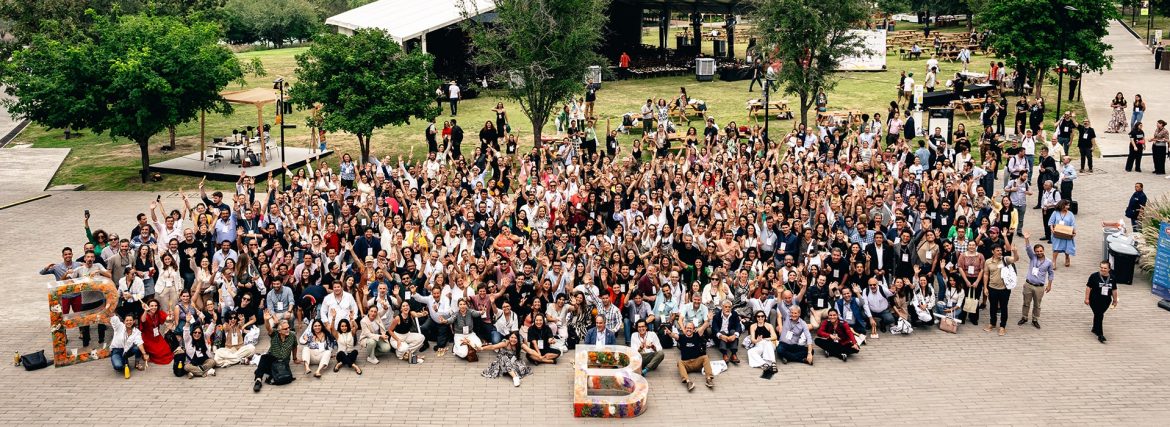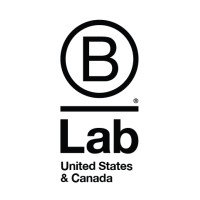Setting the Bar Higher
Embedding Equity, Accountability, and Well-Being into the B Corp Standard
In a business landscape where customers, employees, regulators, and investors demand more than marketing slogans, B Lab™ is setting the bar higher. To achieve or maintain B Corporation certification today, companies must do more than signal good intentions or post supportive hashtags. They are required to prove—through transparent, measurable, and verifiable action—that justice, equity, diversity, inclusion, and holistic well-being are woven into their business models and supply chains.
This evolution reflects a growing truth: in the 21st century, the credibility of a business rests not just on what it sells, but on how it treats its people, its communities, and the environment.
From Values to Verified Action
The seventh iteration of B Lab’s standards, released after four years of global development and two rounds of public consultation, represents a significant shift. Certified B Corporations™ must now embed equity and inclusion throughout their operations and actively contribute to more just and sustainable communities.
The updated framework recognizes a pressing reality: systemic inequities—racial, social, and economic—continue to disadvantage many, and businesses have both an opportunity and a responsibility to help close those gaps. The Justice, Equity, Diversity, and Inclusion (JEDI) Impact Topic provides a structured, practical pathway to turn principles into practice.
For companies like Ben & Jerry’s, a long-standing B Corp™, these principles are far from new. The ice cream maker has made equitable hiring, living wages, and anti-racism training central to its culture. What the new standards do is ensure that all B Corps, regardless of size or sector, operate with a similar level of intentionality. As B Lab explains, certification is no longer just a badge of good intent—it is proof of performance.
The B Impact Assessment as a Roadmap
The backbone of the movement is the B Impact Assessment (BIA), B Lab’s free, open-source digital platform used by more than 250,000 businesses worldwide. Even companies that never seek certification rely on the BIA to measure performance across six key stakeholder areas: employees, customers, communities, suppliers, environment, and shareholders.
The BIA benchmarks a company’s practices, identifies gaps, and offers improvement pathways supported by guides, case studies, and peer examples. For a first-time user, the experience can be eye-opening. It reveals not just how a company compares to peers but also where opportunities for improvement lie.
“Think of it as a GPS for impact,” says a B Lab advisor. “It doesn’t just tell you where you are—it gives you a map to where you want to go.”

Making Workplace Well-Being Measurable
At the heart of the new requirements is a fresh focus on fair work and employee well-being. Each year, certified companies must measure their workplace culture and take tangible steps to improve it. This goes beyond counting benefits—it means assessing belonging, engagement, psychological safety, and overall well-being, then acting on the results.
B Lab provides curated resources to make this practical, drawing from the OECD, CIPD, and other global frameworks. But some of the most inspiring lessons come from within the B Corp community itself:
- JBM Packaging, an Ohio-based manufacturer, has pioneered fair-chance hiring by employing individuals returning from incarceration. The company backs this with in-house life coaches, financial literacy programs, and mental health first aid training.
- The Human Beauty Movement, a purpose-driven beauty company, builds wellness into its culture through “Soul Care Sessions,” giving employees space for reflection, coaching, and connection.
- Even B Lab itself has walked the talk. In the U.S. and Canada, staff enjoy sabbaticals, wellness weeks, and a four-day work week—programs designed by employees to support holistic balance.
This emphasis on well-being recognizes that productivity, innovation, and resilience all stem from a healthy and supported workforce.
Elevating Fair Labor and Inclusion Across the System
Equity is not a single policy—it’s a thread running through multiple areas of the new standard.
- The JEDI Topic requires inclusive hiring practices, mentorship pathways, leadership training in equity fluency, and governance structures that reflect community demographics.
- The Fair Work Topic demands transparency around wage-setting, elimination of wage history in hiring, and annual measurement of gender and racial wage gaps with expectations of progress.
- The Human Rights Topic expands accountability to supply chains, asking companies to identify living wage gaps in contracted services and ensure workers have access to collective bargaining or income support.
Taken together, these expectations transform certification from a one-time score into a continuous improvement process. Companies must not only meet the bar at certification but also demonstrate ongoing progress in order to recertify every three years.
Responsible Innovation and Evolving Standards
The pace of technological change raises new challenges, from artificial intelligence to blockchain and automation. While the current standards do not directly evaluate how companies adopt emerging technologies, B Lab has made adaptability a core principle.
The standards are governed by an independent Standards Advisory Council, informed by community feedback, and updated regularly. The intent is not to chase every tech trend but to ensure the framework stays relevant and focused on what truly matters: impact, accountability, and transparency.
Seven Impact Areas and Transparent Reporting
The certification framework now centers on seven Impact Topics:
- Government Affairs and Collective Action
- Justice, Equity, Diversity, and Inclusion (JEDI)
- Fair Work
- Environmental Stewardship and Circularity
- Human Rights
- Purpose and Stakeholder Governance
- Climate Action
To remain certified, companies must demonstrate progress across all seven areas. Importantly, reporting is now aligned with the Global Reporting Initiative (GRI) and other international frameworks, giving stakeholders a clearer, more comparable picture of corporate performance.

This shift builds trust not only with customers but also with regulators and investors, who increasingly look to recognized benchmarks when evaluating corporate sustainability claims.
Built with the Community, Built for Scale
These changes were not drafted in isolation. The new standards are the result of 26,000+ pieces of stakeholder feedback, alongside consultation with academics, policymakers, business leaders, and community organizations.
The process reflects the movement’s DNA: collaboration and accountability. It also acknowledges the urgent context in which businesses operate today. Climate change is accelerating. Inequality is widening. Public trust in institutions is under strain. And regulatory environments are shifting in ways that create both opportunities and risks.
By establishing non-negotiable requirements across key impact areas, B Lab equips companies to navigate this complexity with clarity and confidence.
Practical Guidance for Aspiring B Corps
For companies considering certification, the journey often starts long before the audit:
- Build a cross-functional team. Engage decision-makers and key voices across departments to ensure a holistic approach.
- Use the B Impact Assessment honestly. Treat it as a diagnostic tool to understand where you are and where you need to go.
- Embed values into governance. Align bylaws, policies, and incentives with stakeholder interests so purpose is not a slogan but a system.
- Treat certification as a beginning. Plan for recertification every three years and engage employees and stakeholders in the ongoing work.
As B Lab leaders often say, “Certification is not a finish line—it’s a starting line.”
Why this Matters Now
The global economy is at a turning point. Customers increasingly demand that brands demonstrate not just what they stand for, but how they act. Employees want workplaces that prioritize equity, belonging, and well-being. Regulators are pushing for more rigorous disclosures, and investors are scrutinizing sustainability claims with greater care.
By sharpening its standards and aligning them with global frameworks, B Lab has given the B Corp movement renewed credibility and urgency. It offers a clear way for businesses to prove their commitment, measure their progress, and contribute to a broader transformation in how value is created.
The promise is simple yet profound: when equity is embedded, when fair work is measured and improved, and when accountability is backed by transparent reporting, businesses can thrive while strengthening the communities and environments they touch.
The updated B Corp standards provide the structure to make that promise real—helping companies not only walk the talk, but inspire others to follow.
AT A GLANCE
Who: B Lab
What: The global organization responsible for b certification and meeting industry standards across valuable categories of importance
Where: Headquartered in Philadelphia, USA with a global reach
Website: www.bcorporation.net



